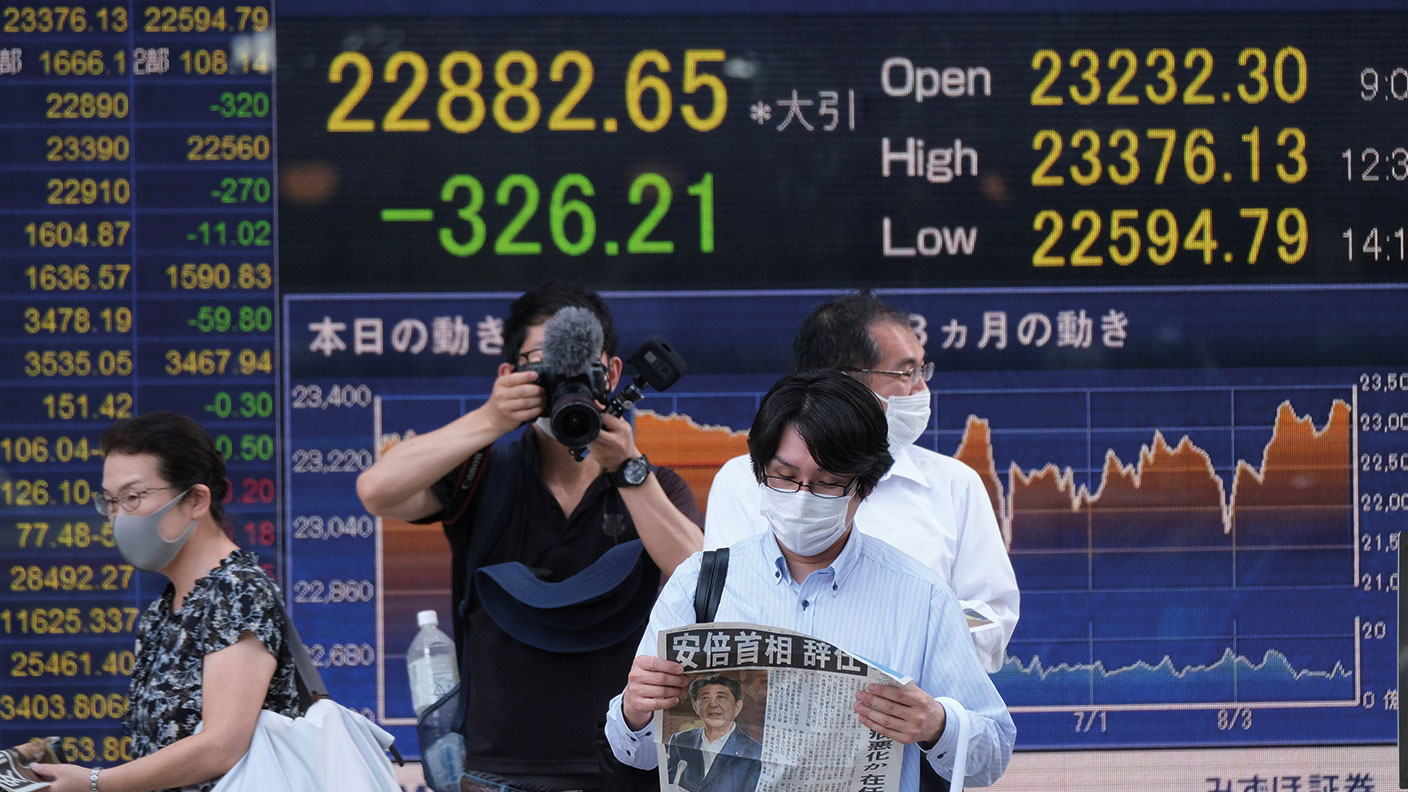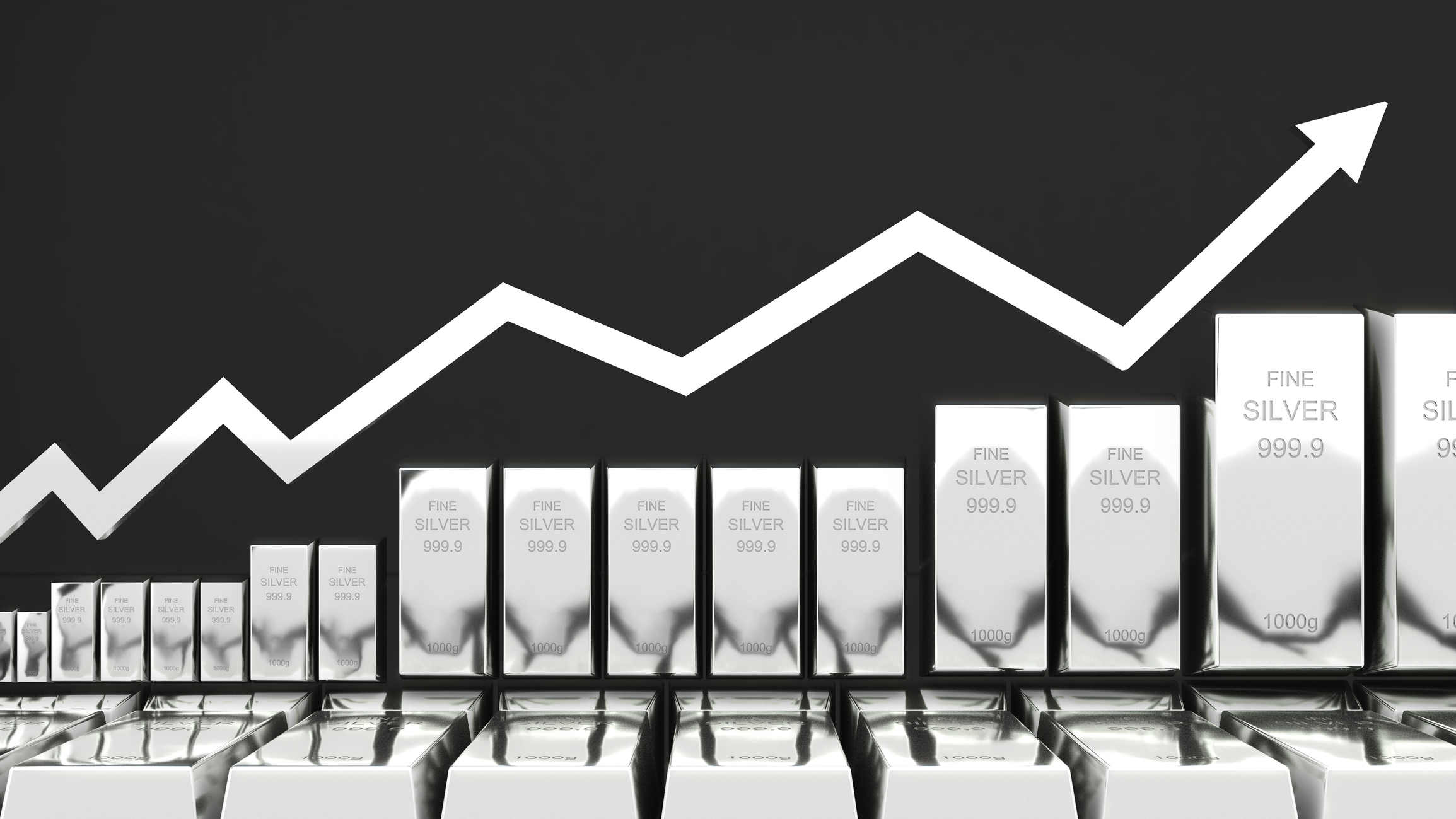Japanese stocks still look cheap after Shinzo Abe's resignation
A period of uncertainty after Shinzo Abe's resignation could be a good chance to buy Japanese stocks at a good price.


Get the latest financial news, insights and expert analysis from our award-winning MoneyWeek team, to help you understand what really matters when it comes to your finances.
You are now subscribed
Your newsletter sign-up was successful
Want to add more newsletters?

Twice daily
MoneyWeek
Get the latest financial news, insights and expert analysis from our award-winning MoneyWeek team, to help you understand what really matters when it comes to your finances.

Four times a week
Look After My Bills
Sign up to our free money-saving newsletter, filled with the latest news and expert advice to help you find the best tips and deals for managing your bills. Start saving today!
What has happened?
Japan’s longest-serving prime minister, Shinzo Abe, in power since late 2012, announced last Friday that he would be resigning on health grounds as soon as his party could elect a successor. During a brief first spell as PM in 2006/7 Abe was seen as a conservative nationalist. In his second lengthy spell, since 2012, he has been seen as relatively pragmatic. He has provided much needed political stability, improved relations with China as well as allies in Asia (with the notable exception of South Korea), sealed important trade deals, and pursued an economic policy – “Abenomics” – aimed at restoring growth and ending deflation. His decision to step down unnerved markets, although his successor is likely to adopt a very similar policy programme.
What is “Abenomics”?
It was the attempt, from 2013 onwards, to revitalise Japan’s long-sluggish and deflation-prone economy with a “three arrow” strategy of ultra-loose monetary policy, fiscal stimulus and structural reforms. The most long-lasting of these was the sustained programme of “quantitative and qualitative” easing by the Bank of Japan under its Abe-appointed governor, Haruhiko Kuroda (who will remain in post after Abe’s departure). By 2018, after a five-year bond-buying spree, Japan’s central bank had become the first among G7 nations (and only the second after Switzerland) to own assets worth more than the whole of the national economy.
What about the structural reforms?
One of the most common criticisms of Abe is that he never delivered on his promises of deep-seated structural reforms. “It is true he never did the most radical things, such as tearing up protections for salaried staff,” says the Financial Times. “But he did liberalise Japan’s electricity market, open the country to Chinese tourists, cripple the agriculture lobby and sign two huge trade deals.” Labour-market reforms aimed at attracting more women into the workplace have been modestly successful. And Abe also introduced important corporate governance reforms, combined with a new stewardship code, that have made Japanese investments far more attractive to foreign and institutional investors. From 2017-19, Japan attracted more private-equity investments than any other country, and its level of M&A activities is second only to the US.
MoneyWeek
Subscribe to MoneyWeek today and get your first six magazine issues absolutely FREE

Sign up to Money Morning
Don't miss the latest investment and personal finances news, market analysis, plus money-saving tips with our free twice-daily newsletter
Don't miss the latest investment and personal finances news, market analysis, plus money-saving tips with our free twice-daily newsletter
Did Abenomics prove a success?
Yes and no. Kuroda’s market-pleasing policy of ultra-low interest rates and bond-buying drove a rally in stocks and sent the yen lower, boosting exporters, and helping to keep growth in positive territory. Inflation picked up a little, meaning officials could declare that the long era of deflation was over. Corporate profits rose, and unemployment remained low, but in spite of Abe’s repeated urgings, those profits never fed through into wage inflation sufficiently strongly to drive a sustained boost to consumer spending. Inflation remained stubbornly below the central bank’s 2% target. Thus, on its own terms, Abenomics failed. Most notably, the anti-growth effects of raising the consumption tax from 5% to 10% outweighed the stimulus effect of great government spending. Yet under Abe both growth and employment improved, partly due to the weaker yen. And there has been no debt crisis, despite the persistent warnings of Abe’s critics (including the deficit hawks within his own party).
What else did he achieve?
Abe’s efforts benefited from propitious timing, says Ben Dooley in The New York Times. In particular, China’s economy surged during his tenure, boosting its appetite for Japanese machine tools and the specialised components needed to manufacture things such as cars and high-end electronics. In addition, Chinese tourists, “eager to spend their growing wages, flooded Japan’s cities and tourist sites, splashing out on luxury goods”. By late last year, however, Japan’s economy was contracting due to slowing global trade and the brewing trade war between the US and China, which badly hit Japanese exports. With Japanese national debt at 150% of its GDP (the highest proportion of any developed economy), Abe once again turned to a rise in the consumption tax in the hope of tackling the debt and shoring up social programmes. The tax rise killed off spending, and then a vicious typhoon devastated central Japan, compounding the economic damage. By the time the Covid-19 pandemic took hold, Japan was already in recession.
So Abe leaves on a bad note?
Indeed. Japan’s GDP fell by an annualised 28% in the second quarter, and Abe’s government weighed in with a stimulus package worth an astonishing 40% of GDP, including low interest loans and cash grants. Covid aside, Abenomics will be remembered for growing the economy, creating jobs and keeping deflation at bay, says Kathy Matsui, vice-chair of Goldman Sachs Japan. The question now is will Abe’s successor be able to tackle the remaining reform agenda items and bring Japan “once and for all out of deflation”, says Matsui. For the rest of the world – a world struggling with a slide towards stagnation, deflation and ultra-low interest rates — Abenomics offers “powerful lessons”, says Robin Harding in the Financial Times.
What are they?
The key lesson is that “monetary policy works”; the initial “bazooka” of massive asset purchases in 2013 was highly effective. “Bond yields fell; stockmarkets boomed; and most important, the yen fell below ¥100 to the dollar, a boon to Japanese industry.” Another is that “weak economies cannot handle tax hikes” and economic strength is a precondition for fiscal tightening. Abe went off course when the consumption tax rose from 5% to 8% in 2014, ultimately pushing Japan back into recession. “If you promise stimulus, and deliver restraint, you get failure,” says Harding. “That is the story of Abenomics in brief.”
Get the latest financial news, insights and expert analysis from our award-winning MoneyWeek team, to help you understand what really matters when it comes to your finances.

Cris Sholt Heaton is the contributing editor for MoneyWeek.
He is an investment analyst and writer who has been contributing to MoneyWeek since 2006 and was managing editor of the magazine between 2016 and 2018. He is experienced in covering international investing, believing many investors still focus too much on their home markets and that it pays to take advantage of all the opportunities the world offers.
He often writes about Asian equities, international income and global asset allocation.
-
 Average UK house price reaches £300,000 for first time, Halifax says
Average UK house price reaches £300,000 for first time, Halifax saysWhile the average house price has topped £300k, regional disparities still remain, Halifax finds.
-
 Barings Emerging Europe trust bounces back from Russia woes
Barings Emerging Europe trust bounces back from Russia woesBarings Emerging Europe trust has added the Middle East and Africa to its mandate, delivering a strong recovery, says Max King
-
 Barings Emerging Europe trust bounces back from Russia woes
Barings Emerging Europe trust bounces back from Russia woesBarings Emerging Europe trust has added the Middle East and Africa to its mandate, delivering a strong recovery, says Max King
-
 How a dovish Federal Reserve could affect you
How a dovish Federal Reserve could affect youTrump’s pick for the US Federal Reserve is not so much of a yes-man as his rival, but interest rates will still come down quickly, says Cris Sholto Heaton
-
 Three companies with deep economic moats to buy now
Three companies with deep economic moats to buy nowOpinion An economic moat can underpin a company's future returns. Here, Imran Sattar, portfolio manager at Edinburgh Investment Trust, selects three stocks to buy now
-
 Should you sell your Affirm stock?
Should you sell your Affirm stock?Affirm, a buy-now-pay-later lender, is vulnerable to a downturn. Investors are losing their enthusiasm, says Matthew Partridge
-
 Why it might be time to switch your pension strategy
Why it might be time to switch your pension strategyYour pension strategy may need tweaking – with many pension experts now arguing that 75 should be the pivotal age in your retirement planning.
-
 Beeks – building the infrastructure behind global markets
Beeks – building the infrastructure behind global marketsBeeks Financial Cloud has carved out a lucrative global niche in financial plumbing with smart strategies, says Jamie Ward
-
 Saba Capital: the hedge fund doing wonders for shareholder democracy
Saba Capital: the hedge fund doing wonders for shareholder democracyActivist hedge fund Saba Capital isn’t popular, but it has ignited a new age of shareholder engagement, says Rupert Hargreaves
-
 Silver has seen a record streak – will it continue?
Silver has seen a record streak – will it continue?Opinion The outlook for silver remains bullish despite recent huge price rises, says ByteTree’s Charlie Morris